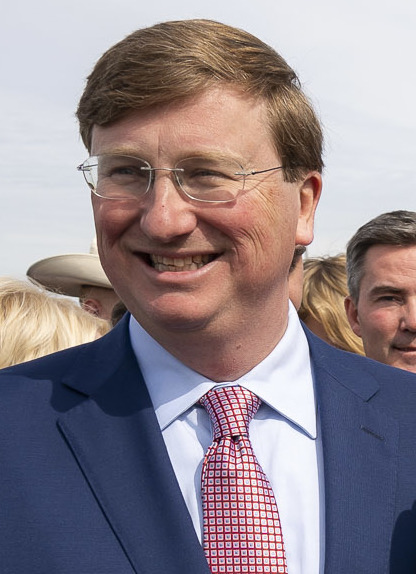 The Freedom From Religion Foundation is strenuously objecting to top Mississippi officials, including the governor, endorsing the National Day of Prayer in an over-the-top event.
The Freedom From Religion Foundation is strenuously objecting to top Mississippi officials, including the governor, endorsing the National Day of Prayer in an over-the-top event.
Gov. Tate Reeves, the first speaker in a National Day of Prayer shindig at the Mississippi Coliseum on Thursday, May 6, read a National Day of Prayer proclamation and then led attendees in prayer. Then, Secretary of State Michael Watson actually claimed in his speech that we are living in the end times:
I believe we need Christian men and women in office today more than ever before. And if you’re a believer, if you’re a member of the church, you understand the signs of the times right now. … In the last few years, no more than ever before in the history of the church, we see the end times.
Another speaker at the event, Patti Herrington, the Mississippi Day of Prayer’s Capitol coordinator, called on God to convert the Jewish people to Christianity:
We pray for a spiritual, supernatural awakening over Israel, oh God. Lord, remove the veil over the eyes of your people, oh God, in Israel, that they would recognize the Messiah, oh God, that they would recognize Jesus, their king, that they would know him, they would see him, and you would reveal yourself to them.
Mississippi Agriculture and Commerce Commissioner Andy Gipson reportedly clapped and nodded in agreement with Herrington’s prayer. He also led his own prayer:
We’re not asking it in our name or our sake, we’re asking it for your Glory in the name above every name, the name before which one day every knee will bow and every tongue will confess that Jesus Christ is Lord, for the glory of God the father.
The National Day of Prayer is an unconstitutional sectarian event, FFRF informs these officials. It originated with the Rev. Billy Graham during his evangelical crusade in Washington, D.C., in 1952. He expressed an openly Christian purpose, seeking an annual prayer proclamation by the President because he wanted “the Lord Jesus Christ” to be recognized across the land. Subsequently, the National Day of Prayer Task Force was created to “communicate with every individual the need for personal repentance and prayer, mobilizing the Christian community to intercede for America and its leadership.” The task force issues annual National Day of Prayer proclamations and submits them to the president, choosing a theme with supporting scripture from the bible. This year’s theme: “Lord Pour Out Your Love, Life, and Liberty,” based upon the New Testament verse 2 Corinthians 3:17.
The Mississippi officials attending this sectarian event represent a diverse population that also consists of not only non-Christians but also atheists and agnostics who do not believe in prayer, FFRF emphasizes. Their active participation in a National Day of Prayer event in their official capacity unabashedly promotes a religious event, sending an official message of endorsement of religion over nonreligion and of exclusion to the 24 percent of Americans who are not religious.
And there are profound constitutional questions raised by their attendance.
“The Establishment Clause in the First Amendment to the U.S. Constitution prohibits government sponsorship of religious messages,” FFRF Staff Attorney Chris Line writes to the three Mississippi officials who attended the National Day of Prayer event. “The Supreme Court has said time and again that the ‘First Amendment mandates government neutrality between religion and religion, and between religion and nonreligion.’”
Government officials can worship, pray, and participate in religious events in their personal Capacities, FFRF emphasizes. But they are not permitted to provide credibility or prestige to their religion by lending a government office and government title to religious events.
As a matter of policy, government sponsorship of a National Day of Prayer event and promotion of prayer by elected officials is inappropriate and unnecessary. It raises the distasteful appearance of political pandering to appeal to and appease a vocal Christian evangelical constituency. FFRF encourages these Mississippi officials to instead stand up for the constitutional principle of the separation between church and state, which unites and protects all citizens — believers and nonbelievers alike.
The Freedom From Religion Foundation is a national nonprofit organization with more than 35,000 members across the country, including members in Mississippi. Its purposes are to protect the constitutional principle of separation between state and church, and to educate the public on matters relating to nontheism.

